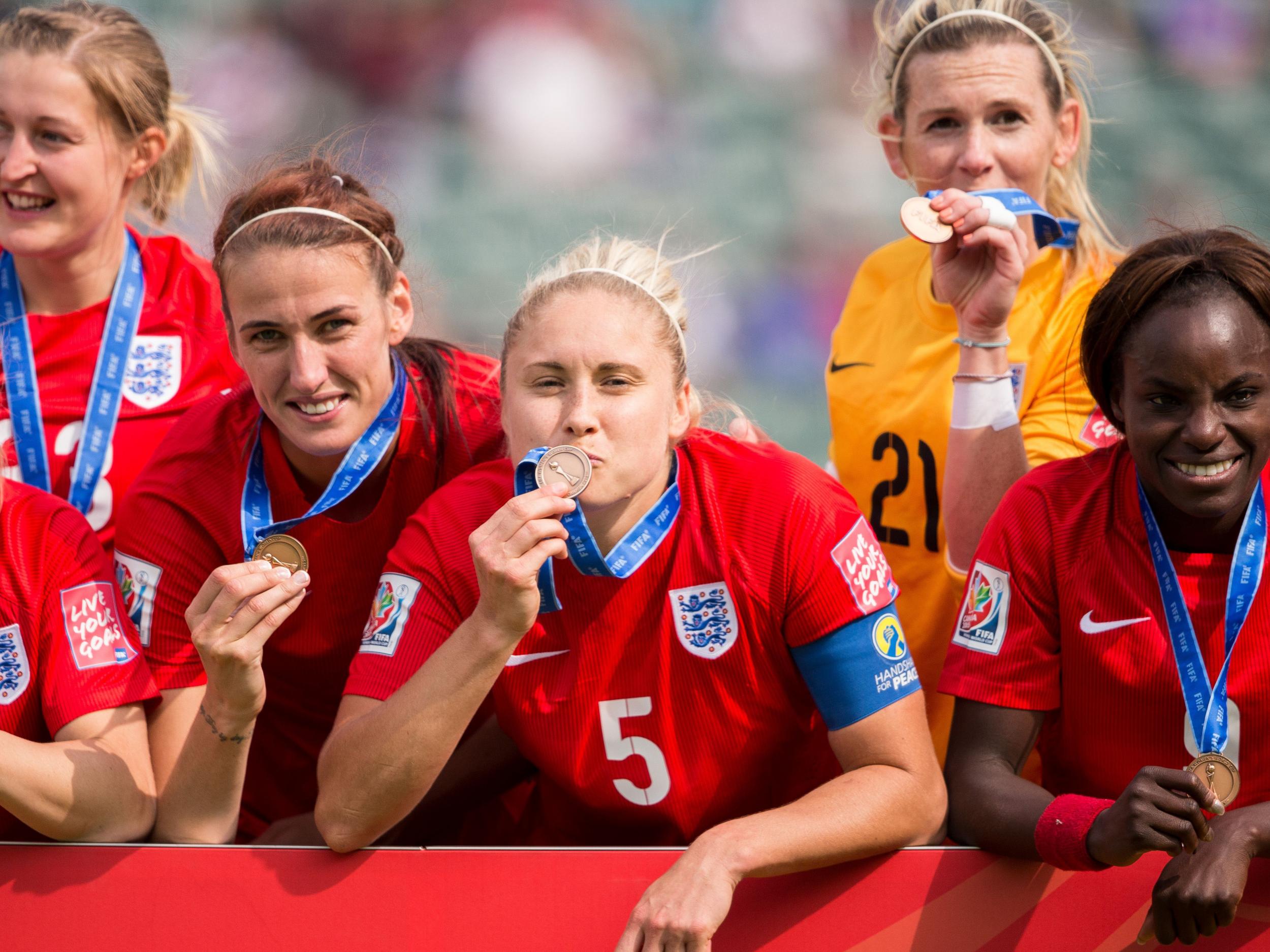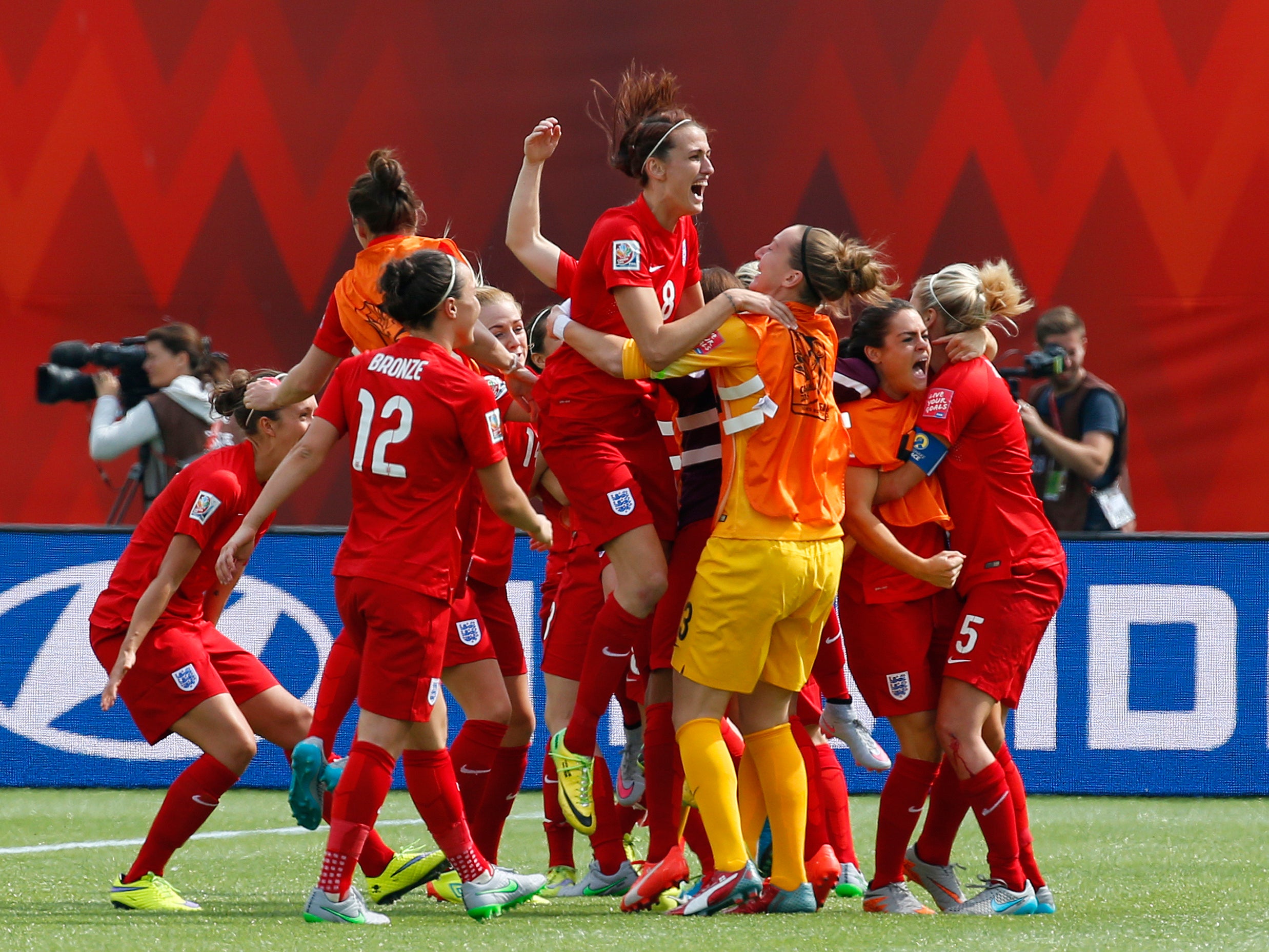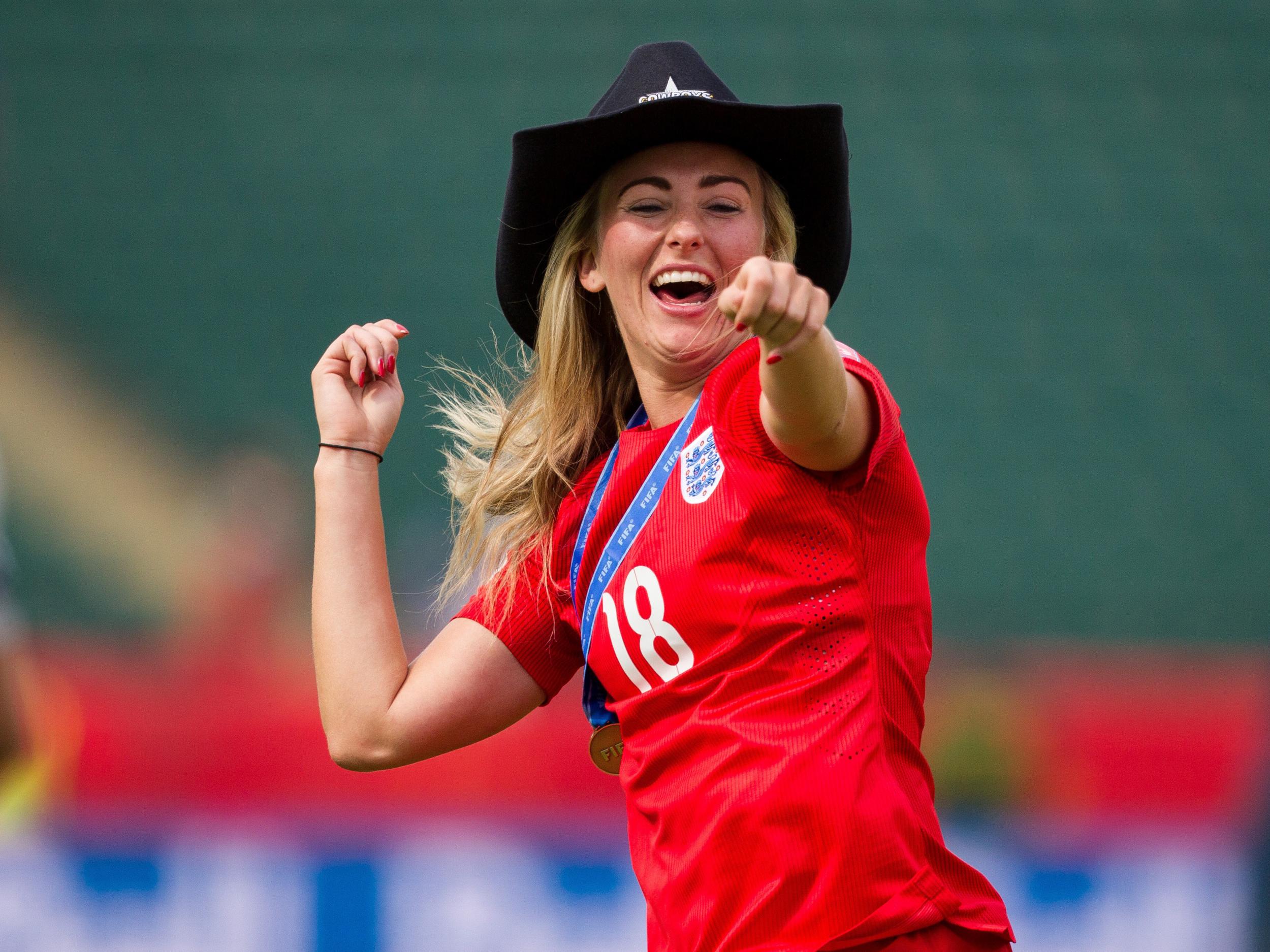Women's football has brighter future but playground stereotypes still need to be tackled
Parents are being encouraged to change the culture of only boys playing football

Your support helps us to tell the story
From reproductive rights to climate change to Big Tech, The Independent is on the ground when the story is developing. Whether it's investigating the financials of Elon Musk's pro-Trump PAC or producing our latest documentary, 'The A Word', which shines a light on the American women fighting for reproductive rights, we know how important it is to parse out the facts from the messaging.
At such a critical moment in US history, we need reporters on the ground. Your donation allows us to keep sending journalists to speak to both sides of the story.
The Independent is trusted by Americans across the entire political spectrum. And unlike many other quality news outlets, we choose not to lock Americans out of our reporting and analysis with paywalls. We believe quality journalism should be available to everyone, paid for by those who can afford it.
Your support makes all the difference.At 11.15pm on a warm Saturday evening in July 2015, after a day when temperatures in England had soared to 28°C, parents across the country collapsed exhausted to sleep, their children already deep into their dreams, unaware that they were missing their nation’s most successful footballing triumph since Bobby Moore held aloft the Jules Rimet trophy in 1966.
At the same moment, across the pond on a sunny afternoon in Canada, Fara Williams kept her cool to slot home a penalty in extra-time against the old foe, Germany, to earn the Lionesses a third place finish at the Women’s World Cup. A landmark achievement for women’s football in England and a moment worthy of a late bed-time, whatever your age.
Mark Sampson’s side flew back as heroes and their on-field progression from the disappointment of being dumped out at the group stages of the European Championships two years earlier was regarded as seismic. Yet, their efforts were largely lost on those whose impressions matter most to the future of the game.
When the primary school playgrounds returned to action the following Monday, hidden beneath the excitable shrill of the children, remained the sexist exchanges that have always been the Achilles heel for the development of women’s football.

“Boys are telling girls that football is a boys’ game and that they can’t play”, said The FA’s National Women’s Football Participation Manager, Rachel Pavlou. “It’s still happening that boys feel that girls shouldn’t play, for whatever reason, and girls are picking up on the fact that this isn’t for them.”
According to Pavlou, the kids’ parents are often equally to blame. “We’ve still got to try and change that culture of parents who don’t traditionally encourage girls to play the game and are more likely to support girls to play other sports, such as netball. This is our national sport, so we want them to be encouraged to play football.”
The impact of playground sexism is startling. By the age of 10, 95 per cent of boys will be playing some form of football, compared to only 41 per cent of girls of the same age. Added to that, only 65 per cent of those currently playing girls’ or women’s football in England started before they were 10 years old.
Last week, the FA released its ‘game plan for growth’ with the ambition of doubling the number of women and girls playing the sport by 2020. Among the headline strategies is a renewed emphasis on growing the number of players aged 5-11, including support for the Premier League Primary Stars scheme and the launch of the SSE Wildcats programme, which will see 200 girls-only clubs created from April.

“Our research showed us that the majority of girls wanted to play with other girls because only the very talented felt confident enough to go and play with boys”, said Pavlou. “If you don’t have those girls playing at that very early age, then it’s much harder to get girls engaged at the older age groups because they’ve either found another sport that they love or they are doing other activities.”
For former England international Rachel Brown-Finnis, who is a qualified P.E. teacher having graduated from Liverpool John Moores University, the FA’s new plan is another step in the right direction. “I think they’ve targeted the right age of children.” She added: “Boys and girls are developing their ability to run, jump, catch and throw at that age and if you can introduce any sport, it becomes an innate skill and second nature.
“It also normalises girls’ and women’s football. It should be already, but there’s still an ongoing battle with that. Making it prescriptive and that all primary schools should have girls’ football teams or a provision for girls to play and train has to be the way forward.”
Alongside a playing career which spanned 20 years, Brown-Finnis has used her degree for roles with Everton in the Community and Sky Sports Living for Sport and the former keeper said she has seen, first-hand, a significant lack of teaching resources for sport in primary schools.

“It shouldn’t be difficult to provide all sports for kids because generally in primary schools you have one teacher who is with that class the whole time. The real problem in primary schools is the training of those teachers in sports. A lot of schools were very grateful for that expertise because it’s not something many primary school teachers are necessarily very confident in.”
England Women’s all-time leading goal scorer Kelly Smith, who announced her retirement from playing earlier this year and is now Arsenal Ladies’ Development Team Manager, welcomed the designated support for primary school teachers. “I think there’s a big number of PE teachers that don’t feel comfortable teaching girls’ football,” Smith said.
“There’s a gap at primary school level where younger girls are missing the opportunities to play football and that’s the key age where you enjoy it and have that opportunity and you either grasp it or it bypasses you. The FA have addressed that and their providing coaches to go in and support the PE teachers to give them confidence to teach it.”
Smith, Brown-Finnis and co. will be watching from the sofa or the stands this summer as Mark Sampson takes his Lionesses to the Netherlands for the European Championships, where they will be among the favourites to go all the way. The FA’s new strategy might have come too late to ensure the tournament is the talk of the primary school playground back at home, but the long-term future now looks a little brighter for women’s football in England.
Join our commenting forum
Join thought-provoking conversations, follow other Independent readers and see their replies
Comments